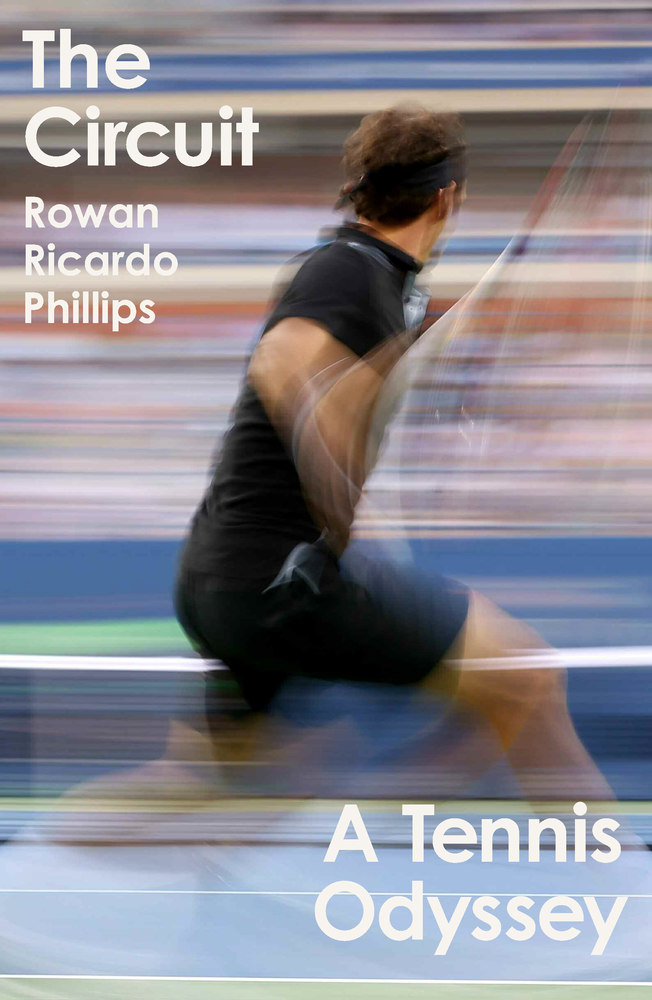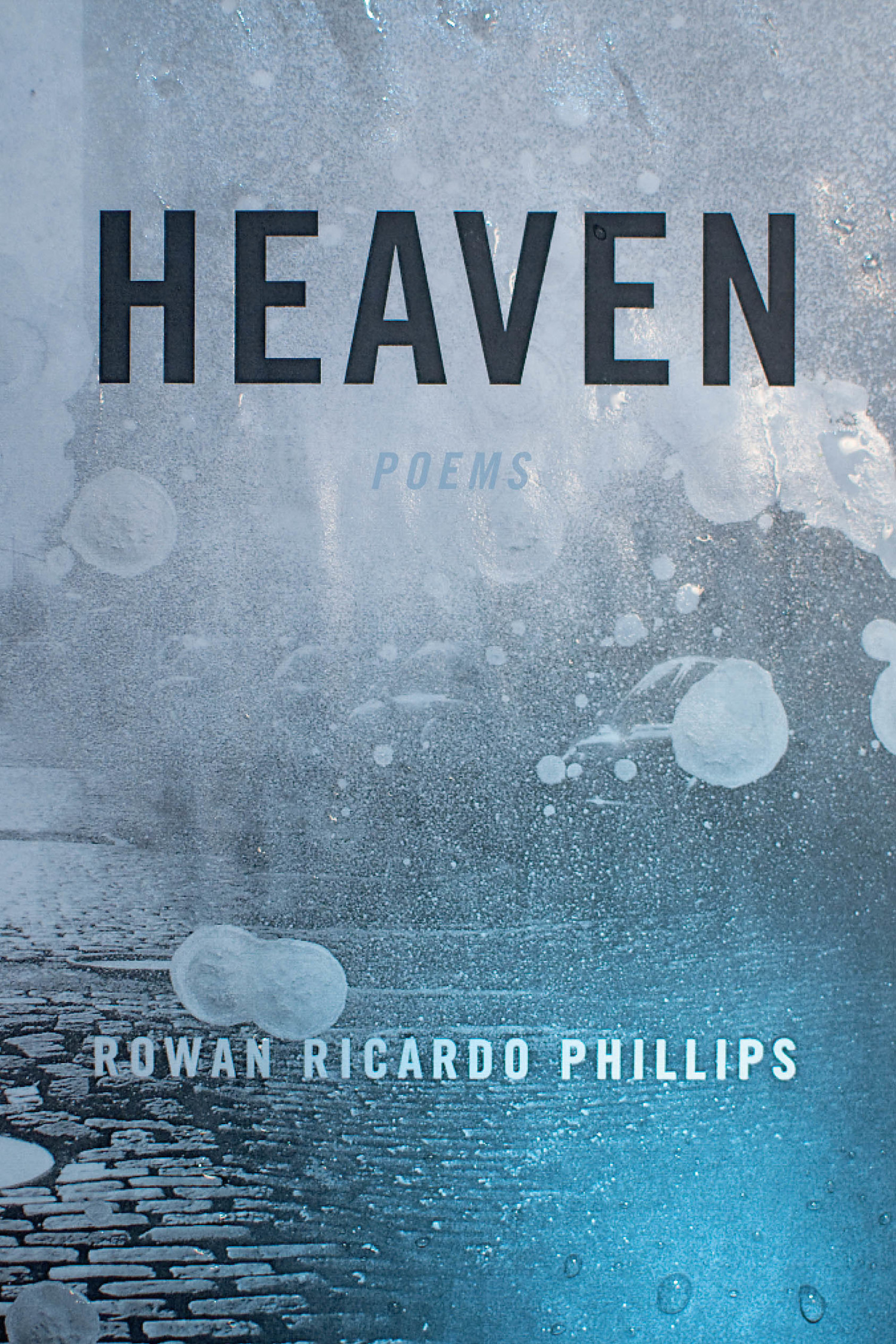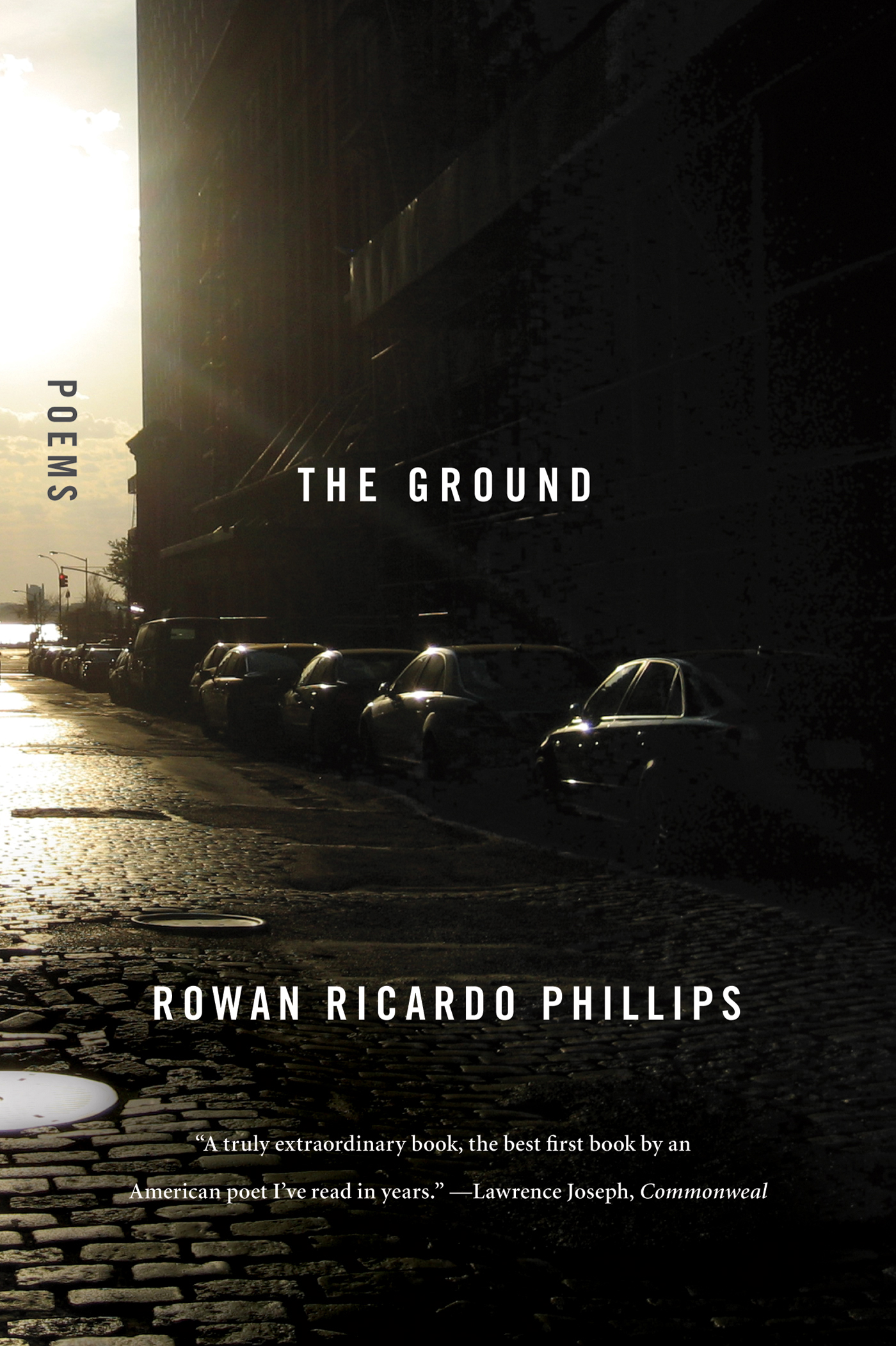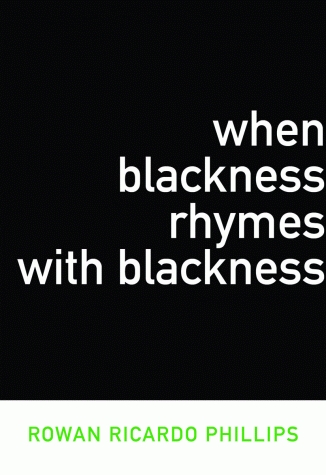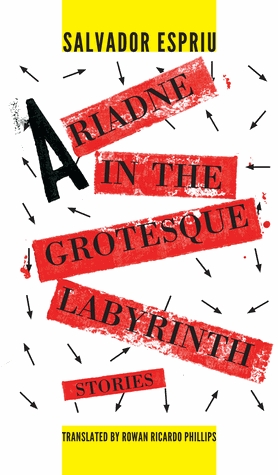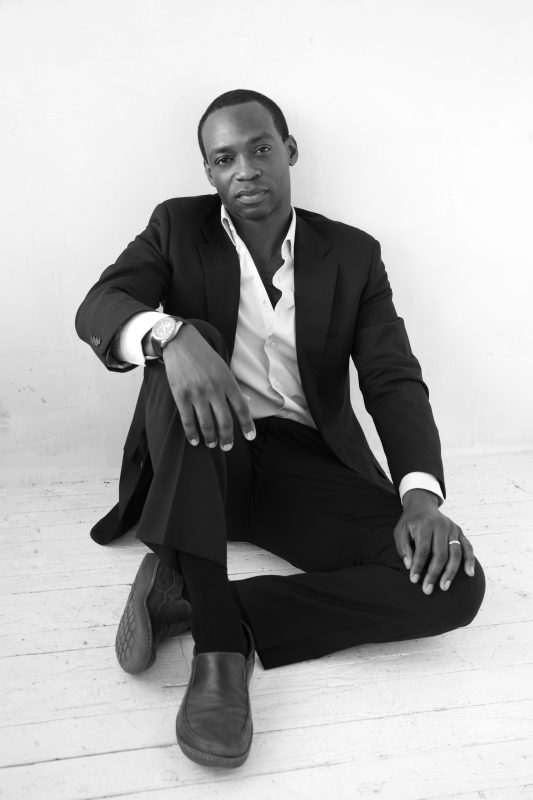
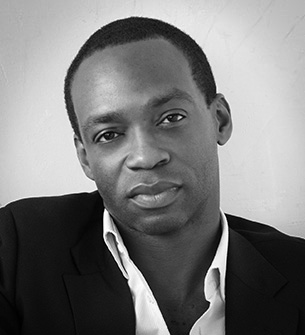
Rowan Ricardo Phillips
Award-winning Poet
Acclaimed Translator & Critic
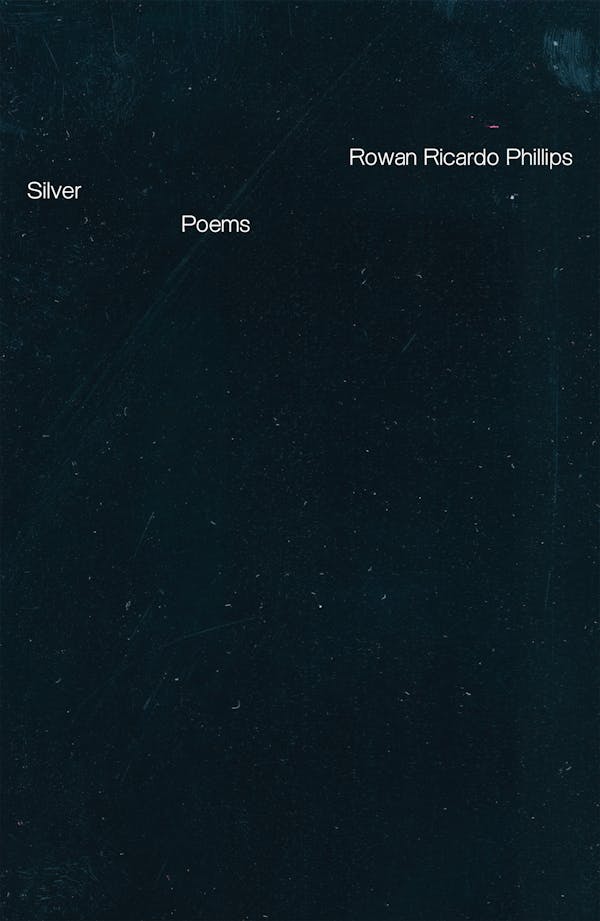
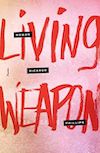
Readings &
Lecture Topics
- An Evening with Rowan Ricardo Phillips
Biography
“No matter where he goes, Phillips’ language is hauntingly astute, and the reality he conjures is multi-layered.” ―The Washington Post
“Dazzling, totally original combinations of language and form, geography and autobiography, history, myth, and religion.” —Commonweal
“The ground Phillips treads is a middle ground—between spirit and flesh, heaven and earth, here and gone. His images are evanescent, twilit, smoke-obscured.” —New York Times
Rowan Ricardo Phillips is a highly acclaimed, multi-award-winning poet, author, screenwriter, academic, journalist and translator, Phillips is the author of several books. His poetry collections include Silver (FSG, 2024), The Ground (FSG, 2012), Heaven (FSG, 2015), Living Weapon (2020). He is also the author of When Blackness Rhymes with Blackness (a new edition of which is forthcoming from FSG) and the nonfiction book The Circuit: A Tennis Odyssey. His translations, primarily from Catalan, have appeared widely; including his translation of Salvador Espriu’s classic short-story collection Arianda and the Grotesque Labyrinth (Dalkey Archive, 2012).
Phillips has written on contemporary art for Artforum as well as for David Kordansky Gallery. In 2021, an exhibition inspired by one of Phillips’ poems, “The Beatitudes of Malibu” debuted at the David Kordansky Gallery in Los Angeles. Phillips is a regular contributor to The New York Times Magazine, the President of the Board of the New York Institute of the Humanities, and the poetry editor of The New Republic.
He has been the recipient of numerous awards and fellowships, including the Nicolás Guillén Outstanding Book Award, the Anisfield-Wolf Book Award, the PEN/ESPN Award for Literary Sportswriting, a fellowship from the John Simon Guggenheim Memorial Foundation, the PEN/Joyce Osterweil Award for Poetry, a Whiting Award, and the GLCA New Writers Award. He has also been a finalist for the National Book Award, the Griffin International Poetry Prize, the NAACP Award for Outstanding Work in Poetry, and the Los Angeles Times Book Prize.
Also a renowned sportswriter, Phillips is a curatorial consultant to the National Baseball Hall of Fame and Museum. His book in progress, I Just Want Them to Remember Me: Black Baseball in America will be published by FSG in 2025. He has written extensively on baseball, basketball, soccer, and tennis for The New York Times, The New York Times Magazine, The New Republic, The New Yorker, and The Paris Review.
Phillips’ screenplay, Clemente, for a biopic based on the life of baseball icon Roberto Clemente is in pre-development for Legendary Entertainment and LeGrisbi Productions. The screenplay is adapted from Pulitzer Prize-winner David Maraniss’ biography Clemente: The Pride and Passion of Baseball’s Last Hero. His poetry has been adapted for music and has also appeared on Spike Lee’s Netflix series She’s Gotta Have It.
A graduate of Swarthmore College and Brown University, where he earned his doctorate in English Literature, Rowan Ricardo Phillips is a Distinguished Professor of English at Stony Brook University. He divides his time between New York City and Barcelona with his wife and two daughters.
Short Bio
Rowan Ricardo Phillips is a multi-award winning poet, nonfiction writer, scholar, screenwriter, and translator. He is the author of The Ground, Heaven, Living Weapon, Silver, When Blackness Rhymes with Blackness, and The Circuit: A Tennis Odyssey. Phillips has been the recipient of a Whiting Writers’ Award, a Guggenheim Fellowship, the Nicolás Guillén Outstanding Book Award, the PEN/Osterweil Prize for Poetry, the Anisfield-Wolf Book Award, and the GLCA New Writers Award, and the PEN/ESPN Award for Literary Sportswriting. He lives in New York City and Barcelona.
Videos
Publications
Silver
Poetry, 2024
This beautiful, slender collection—small and weighted like a coin—is Rowan Ricardo Phillips at his very best. These luminous, unsparing, dreamlike poems are as lyrical as they are virtuosic. “Not the meaning,” Phillips writes, “but the meaningfulness of this mystery we call life” powers these poems as they conjure their prismatic array of characters, textures, and moods. As it reverberates through several styles (blank verse, elegy, terza rima, rhyme royal, translation, rap), Silver reimagines them with such extraordinary vision and alluring strangeness that they sound irrepressibly fresh and vibrant. From beginning to end, Silver is a collection that reflects Phillips’s guiding principle—“part physics, part faith, part void”—that all is reflected in poetry and poetry is reflected in all. This is work that brings into acute focus the singular and glorious power of poetry in our complex world.
Living Weapon
Poetry, 2020
A revelation, a shoring up, a transposition: Rowan Ricardo Phillips’s Living Weapon is a love song to the imagination, a new blade of light honed in on our political moment. A winged man plummets from the troposphere; four NYPD officers enter a cellphone store; concrete sidewalks hang overhead. Here, in his third collection of poems, Phillips offers us ruminations on violins and violence, on hatred, on turning forty-three, even on the end of existence itself. Living Weapon reveals to us the limitations of our vocabulary, that our platitudes are not enough for the brutal times in which we find ourselves. But still, our lives go on, and these are poems of survival as much as they are an indictment. Couched in language both wry and ample, Living Weapon is a piercing addition from a “virtuoso poetic voice”.
The Circuit
Nonfiction, 2019
“As sports writing goes, The Circuit is unusual in the very best way. Rowan Ricardo Phillips writes with such fluidity, and packs the book with bursts of brilliance. This is a compulsively readable guide to one truly Homeric year of professional tennis.” —John Green
An energetic, lyrical, genre-defying account of the 2017 tennis season. In The Circuit: A Tennis Odyssey, the award-winning poet—and Paris Review sports columnist—Rowan Ricardo Phillips chronicles 2017 as seen through the unique prism of its pivotal, revelatory, and historic tennis season. The annual tennis schedule is a rarity in professional sports in that it encapsulates the calendar year. And like the year, it’s divided into four seasons, each marked by a final tournament: the Grand Slams. Phillips charts the year from winter’s Australian Open, where Roger Federer and Rafael Nadal renewed their rivalry in a match for the ages, to fall’s U.S. Open. Along the way, Phillips paints a new, vibrant portrait of tennis, one that captures not only the emotions, nerves, and ruthless tactics of the point-by-point game but also the quicksilver movement of victory and defeat on the tour, placing that sense of upheaval within a broader cultural and social context. Tennis has long been thought of as an escapist spectacle: a bucolic, separate bauble of life. The Circuit will convince you that you don’t leave the world behind as you watch tennis—you bring it with you.
Heaven
Poetry, 2015
“Who the hell’s heaven is this?” Rowan Ricardo Phillips offers many answers, and none at all, in Heaven, the piercing and revelatory encore to his award-winning debut, The Ground. Swerving elegantly from humor to heartbreak, from Colorado to Florida, from Dante’s Paradise to Homer’s Illiad, from knowledge to ignorance to awe, Phillips turns his gaze upward and outward, probing and upending notions of the beyond. “Feeling, real feeling / with all its faulty / Architecture, is / Beyond a god’s touché”—but it does not elude Phillips. Meditating on feverish boyhood, on two paintings by Chuck Close, on Shakespeare’s Measure for Measure, on a dead rooster by the side of the road in Ohio, on an elk grazing outside his window, his language remains eternally intoxicating, full of play, pathos, and surprise. “The end,” he writes, “like / All I’ve ever told you, is uncertain.” Or, elsewhere: “The only way then to know a truth / Is to squint in its direction and poke.” Phillips—who received a 2013 Whiting Writers’ Award as well as the PEN / Joyce Osterweil Award—may not be certain, but as he squints and pokes in the direction of truth, his power of perception and elegance of expression create a place where beauty and truth come together and drift apart like a planet orbiting its star. The result is a book whose lush and wounding beauty will leave its mark on readers long after they’ve turned the last page.
The Ground: Poems
Poetry, 2013
“From New York in the often surreal aftermath of 9/11, to the deep underworlds of ancient mythology, to the trans-continental heritage and childhood of Phillips himself, these are poems with a restless agility that make the terrain beneath your feet more mysterious.” — Granta
A poignant and terse vision of New York City unfolds in Rowan Ricardo Phillips’s debut book of poetry. A work of rare beauty and grace, The Ground is an entire world, drawn and revealed through contemplation of the post-9/11 landscape. With musicality and precision of thought, Phillips’s poems limn the troubadour’s journey in an increasingly surreal modern world (“I plugged my poem into a manhole cover / That flamed into the first guitar”). The origin of mankind, the origin of the self, the self’s development in the sensuous world, and—in both a literal and a figurative sense—the end of all things sing through Phillips’s supple and idiosyncratic poems. The poet’s subtle formal sophistication—somewhere between flair and restraint—and sense of lyric possibility bring together the hard glint of the contemporary world and the eroded permanence of the archaic one through remixes, underground sessions, Spenserian stanzas, myths, and revamped translations. These are poems of fiery intelligence, inescapable music, and metaphysical splendor that concern themselves with lived life and the life of the imagination—both equally vivid and true—as they lay the framework for Phillips’s meditations on our connection to and estrangement from the natural world.
When Blackness Rhymes with Blackness
Criticism, 2010
In When Blackness Rhymes with Blackness, Rowan Ricardo Phillips pushes African American poetry to its limits by unraveling “our desire to think of African American poetry as African American poetry.” Phillips reads African American poetry as inherently allegorical and thus “a successful shorthand for the survival of a poetry but unsuccessful shorthand for the sustenance of its poems.” Arguing in favor of the “counterintuitive imagination,” Phillips demonstrates how these poems tend to refuse their logical insertion into a larger vision and instead dwell indefinitely at the crux between poetry and race, “where, when blackness rhymes with blackness, it is left for us to determine whether this juxtaposition contains a vital difference or is just mere repetition.”
Articles & Audio
Read What’s In Print
• What Sparks Poetry: Rowan Ricardo Phillips on “Paradise Lost” – Poetry Daily
• The Best Recent Poetry – The Guardian
• A Poet With His Eyes on Politics – New York Times
• Stronger than Steel: Living Weapon Review – LA Review of Books
• Letters with Rowan Richardo Phillips – BOMB Mag
• Starred Review of Living Weapon — Publisher’s Weekly
• A Book That Honors an Underrated Sport — The Atlantic
• The 2019 PEN America Literary Awards Longlist – PEN America
• Book Club: The Circuit reflects on the remarkable 2017 ATP Season – Tennis.com
• Black Male Writers for Our Time — The New York Times
• Interview with Rowan Ricardo Phillips — Granta
• Rowan Ricardo Phillips on his Poem “Mappi Mundi” — Poetry Society of America
• Review of The Ground — Commonweal
• Interview with Rowan Ricardo Phillips — Words Without Borders
• Poetry Book Club Chat with Rowan Ricardo Phillips — The Rumpus
• Review of The Ground — NY Daily News
Listen to Audio
• Rowan Ricardo Phillips: Never Again Would Birds’ Song Be the Same – On Being
• Phillips Shares His Experience as Educator and Poet — Aspen Public Radio
• Griffin Poetry Prize spotlight: Rowan Ricardo Phillips reads from Heaven — CBC Radio
• Rowan Ricardo Phillips Reads Nick Laird — The New Yorker
• Rowan Ricardo Phillips Reads His Poem “Measure for Measure” — The New Yorker
Selected Writings
• Read “Screen” by Rowan Ricardo Phillips – Heron Barks
• Read an excerpt from The Circuit – The Paris Review
MEASURE FOR MEASURE
Alone in Woody Creek, Colorado,
I fell asleep reading Measure for Measure,
Right at the part where the Duke delivers
His Old Testament decision of haste
Paying for haste, and leisure answering
Leisure, like quitting like, and (wait for it)
Measure for measure. I saw it performed
Once, in Stratford; I was maybe twenty.
I only remembered the “measure still
For measure” part, until now. It stuck
With me. But the rest of it was wiped clean
From my memory; all of Stratford, too.
Still, the way the actor leaned on that half
Line, “measure still for measure,” as though it
Were the measure of his self, measure still
For measure, all these years, I remembered
Being the heart of the play, its great gist;
But I forgot it was a death sentence.
Whether Angelo deserved such a fate,
Or Isabella’s ability to
Rise above the mire doesn’t matter:
Death, not beauty, woke me.
My neck aches.
All of Shakespeare feels like lead on my chest,
Not for death, let’s face it, death awaits us,
Usually with less prescient language,
But death measures us with a noun’s contempt
For our imagination, being death
But not dying, making do, like when I
Turn from the Bard, look outside and behold
A herd of a hundred elk, surviving
The snow as they know how—being elk.
An hour ago they were in the hills,
But now they graze a mere five feet away,
Their world othered by these austere windows;
The massive seven-pointer, chin held high
To prevent his thick neck from crashing down,
Hoofs the snow and starts towards me, but then turns
To compass the valley between his horns.
BOYS
We’d cut school like knives through butter, the three
Of us—Peter, Stephen and I—to play
Just about all the music we knew,
Which meant that from nine in the morning till
Steve’s parents, the ever-patient Murtaughs,
Would get home from work, I played guitar,
Peter played bass, and Steve (who’d end
Up becoming a guitarist by trade
When we went separate ways, to separate
Schools, in separate states) Steve at this point
Played the drums. We dreamed of power trios
And powered our way through song after song,
Including ones Steve and I wrote—like
“Hey, Regina” and the lamentably-
Titled “String Her Up.” Sometimes we tried out
Some Yes, a long “Hey Joe,” the stereo phaser
Was my signature sound, and I’d bend in
And out of notes, imply arpeggios
Only to solo over them, tapped, frowned
Through anything in a major key, felt
My way home on Steve’s map of snares, Pete’s rope.
We’d play an entire Zeppelin album,
Usually the first or second, then stray
By chance into the longer, later songs
Like bees that float down and drown in a pool.
We’d break for lunch and then get back at it
As though we had a gig to get ready for,
Or a demo to cut, the cassette deck
Rolling its eyes as it whirred round and round.
Peter, as is the nature of bassists,
Held the tunes together and kept things light.
Years later, I assumed he was dead.
My telecaster glares at me at night now
From inside the hard case by my bed—
And the calluses on my fingertips
Have long since softened. The six-minute solos
At some point became poems it took two months
Minimum to make seem seamless. Steve
In the meantime thrived in the Triangle,
Became Stevie, married Emily; Pete
I know less about. He posts on Facebook
Cheerfully about the Light, the Great Light
That glows in all of us, sends the occasional
White dove in the occasional shared shot,
A sun resting on a cloud like a pearl
In its mooted grey shell. Nostalgia courts
Me. I’m nearing forty, we were boys—
And I should let us be. But nostalgia
Spreads quickly through the ashes of our youth,
Making ferned fires out of blue beliefs.
When the dark would come, we’d show each other
Our blisters, the painful white whorls peeling,
Our red palms upwards, outstretched and unread.
—from Heaven

